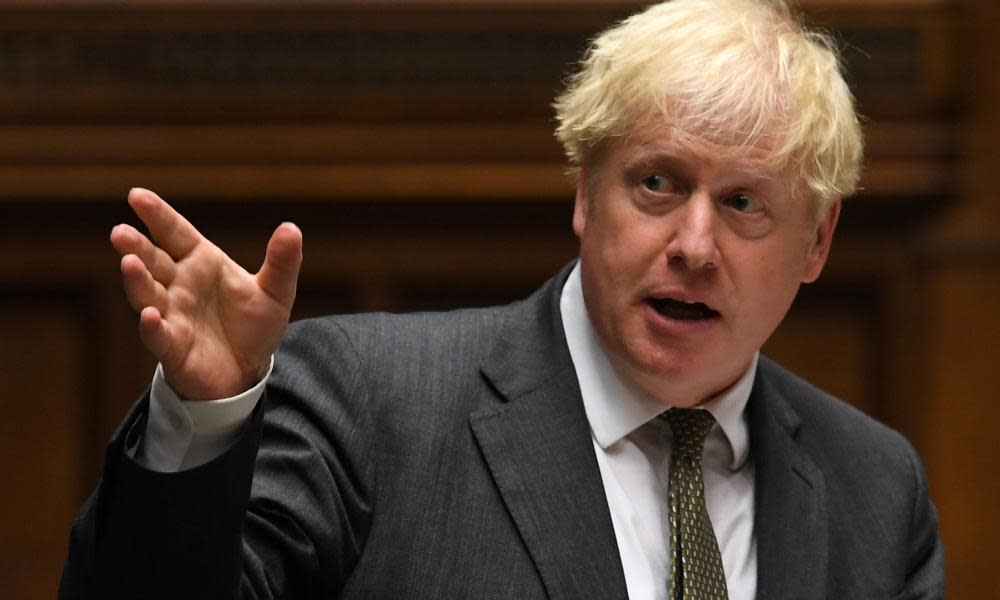Climate crisis must not be overshadowed by Covid, Johnson to tell UN

The world cannot allow the climate emergency to be overshadowed by the coronavirus pandemic, the UK prime minister Boris Johnson will warn, but must “build back better” after the crisis by cutting greenhouse gas emissions as a matter of urgency.
Johnson will announce that the UK will host an online event to mark the fifth anniversary of the Paris climate agreement this December, with a call to all countries to strengthen their commitments on cutting carbon.
He will tell a round table on climate at the UN general assembly: “We cannot let climate action become another victim of coronavirus. Let us be the leaders who secure the very health of our planet for our children, grandchildren and generations to come.”
The UK will host the next UN climate summit, called Cop26, and postponed by a year from its original date of this November. The crunch summit is intended to put the world on track to meet the Paris agreement goal of holding global heating to well below 2C.
Under the 2015 accord, all countries must come forward this year with new national plans that ratchet up their carbon-curbing ambition. Tougher plans, called nationally determined contributions (NDCs), are needed because current commitments would lead to a disastrous 3C rise.
The UK has not yet set out its NDC, despite its status as president of Cop26, but is now expected to do so at or before the December meeting.
Johnson will say on Thursday: “The UK will lead by example, keeping the environment on the global agenda and serving as a launch pad for a global green industrial revolution. But no one country can turn the tide – it would be akin to bailing out a liner with a single bucket.”
Prospects for a successful Cop26 were boosted on Tuesday when the Chinese president, Xi Jinping, announced the world’s biggest emitter would reach carbon neutrality – the point at which any remaining emissions are balanced out by measures to absorb carbon, such as growing forests – by 2060, and would cause its emissions to peak and then begin to decline before 2030.
These commitments have yet to be fleshed out into a formal NDC, but they mark an unexpected step forward from China on the world stage. The move follows an intense round of negotiations with the EU, culminating in a virtual summit last week.
The EU also set out its goals last week, not yet in a formal NDC submission, to cut emissions by 55% by 2030, relative to 1990 levels.
With two of the world’s three biggest emitting blocs now committed to strengthened plans under the Paris agreement, and more than 100 smaller nations now with their own NDCs, the stage is set for a showdown with the US, the world’s second biggest emitter.
The US presidential elections take place on 3 November, the day before president Donald Trump’s withdrawal from the Paris agreement takes effect. If he gains a second term, other nations have vowed to forge a path forward to meeting the Paris goals without the US, but that will be difficult.
By the time of the UK’s December conference to mark the Paris anniversary, the results of the US presidential election should be known, even if there is a delay – as some fear – owing to the unusual circumstances of the pandemic.
Alok Sharma, Cop26 president and business secretary, said: “We are setting the stage [for Cop26] now with a call to all those who are ready to step forward this December and set out bold new NDCs for a clean and prosperous future. The responsibility to act lies with each of us and together we can drive forward action.”

 Yahoo News
Yahoo News 
